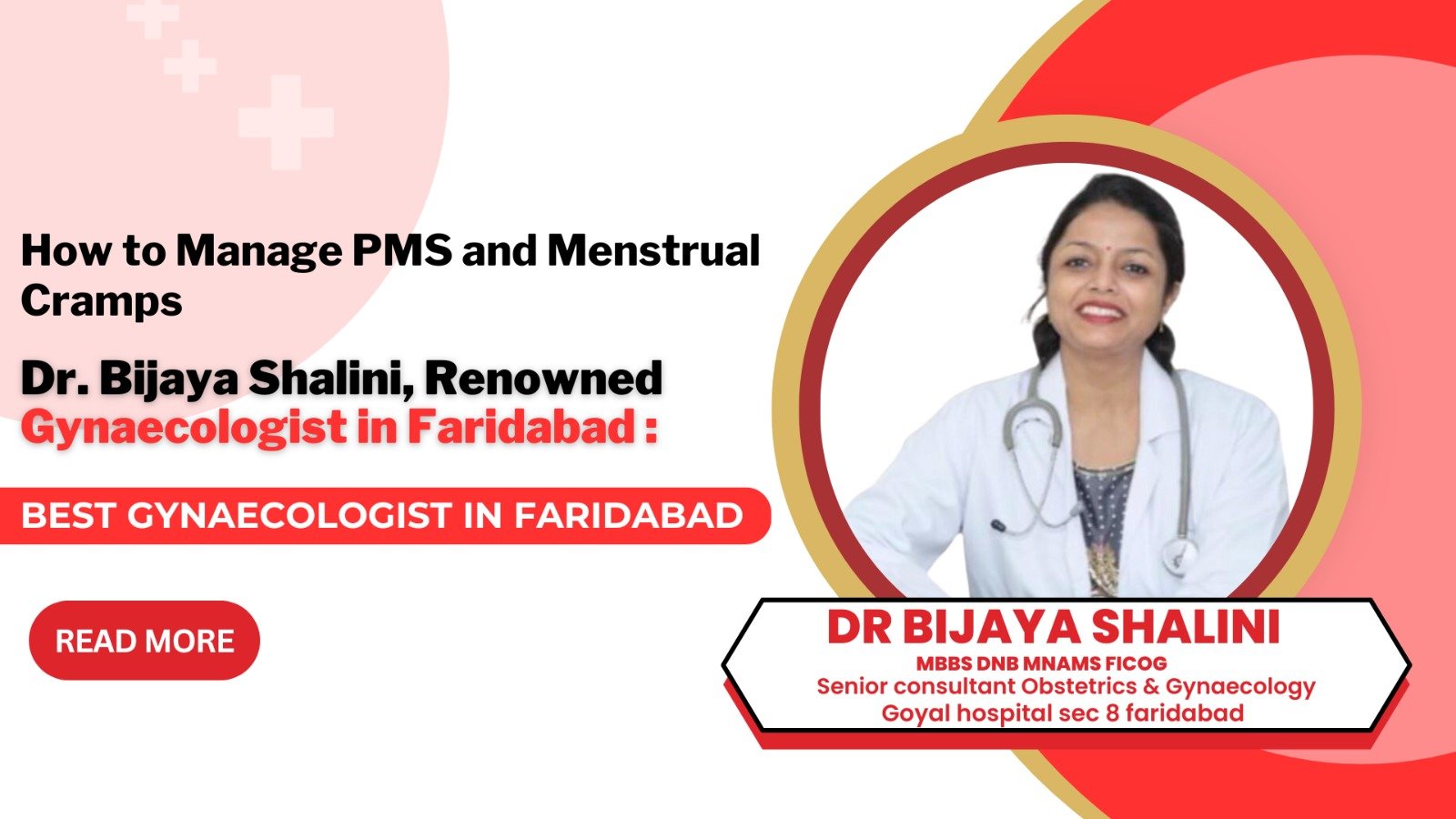Premenstrual syndrome (PMS) and menstrual cramps are common issues that many women face each month. Managing these symptoms effectively can significantly improve your quality of life. Dr. Bijaya Shalini, the best gynecologist in Faridabad, offers expert advice on how to alleviate discomfort and maintain your well-being during this time.
Understanding PMS and Menstrual Cramps
PMS refers to a group of symptoms that occur before your period, including mood swings, bloating, fatigue, and irritability. Menstrual cramps, or dysmenorrhea, are painful contractions of the uterus that occur during your period.
Tips for Managing PMS and Menstrual Cramps
Healthy Diet: Maintain a balanced diet rich in fruits, vegetables, and whole grains. Reducing salt, caffeine, and sugar intake can help minimize bloating and mood swings.
Stay Hydrated: Drinking plenty of water can help reduce bloating and ease menstrual cramps.
Regular Exercise: Physical activity, such as walking, yoga, or swimming, can boost your mood and reduce cramp intensity by increasing blood circulation.
Heat Therapy: Applying a heating pad or hot water bottle to your lower abdomen can relax muscles and alleviate cramps.
Over-the-Counter Pain Relief: Non-prescription medications like ibuprofen or naproxen can help reduce inflammation and pain.
Stress Management: Techniques such as meditation, deep breathing exercises, and adequate sleep can help manage stress and reduce PMS symptoms.
Supplements: Calcium, magnesium, and vitamin B6 supplements may help alleviate PMS symptoms. Always consult with your gynecologist before starting any new supplement regimen.
Hydration and Herbal Teas: Herbal teas like chamomile, ginger, and peppermint can have soothing effects and help with bloating and cramps.
When to See a Gynecologist
If your PMS or menstrual cramps are severe and impact your daily life, it’s important to seek medical advice. Dr. Bijaya Shalini, the best gynecologist in Faridabad, can provide personalized treatment plans and recommendations to help you manage your symptoms effectively.
Conclusion
Managing PMS and menstrual cramps involves a combination of lifestyle changes, home remedies, and, when necessary, medical treatment. By following these tips and seeking expert advice from Dr. Bijaya Shalini, you can significantly reduce discomfort and improve your overall well-being during your menstrual cycle. If you have any concerns or need further assistance, don’t hesitate to schedule an appointment with Dr. Shalini for comprehensive care and support.
